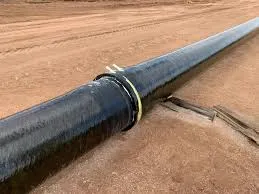
-
 Afrikaans
Afrikaans -
 Albanian
Albanian -
 Amharic
Amharic -
 Arabic
Arabic -
 Armenian
Armenian -
 Azerbaijani
Azerbaijani -
 Basque
Basque -
 Belarusian
Belarusian -
 Bengali
Bengali -
 Bosnian
Bosnian -
 Bulgarian
Bulgarian -
 Catalan
Catalan -
 Cebuano
Cebuano -
 China
China -
 China (Taiwan)
China (Taiwan) -
 Corsican
Corsican -
 Croatian
Croatian -
 Czech
Czech -
 Danish
Danish -
 Dutch
Dutch -
 English
English -
 Esperanto
Esperanto -
 Estonian
Estonian -
 Finnish
Finnish -
 French
French -
 Frisian
Frisian -
 Galician
Galician -
 Georgian
Georgian -
 German
German -
 Greek
Greek -
 Gujarati
Gujarati -
 Haitian Creole
Haitian Creole -
 hausa
hausa -
 hawaiian
hawaiian -
 Hebrew
Hebrew -
 Hindi
Hindi -
 Miao
Miao -
 Hungarian
Hungarian -
 Icelandic
Icelandic -
 igbo
igbo -
 Indonesian
Indonesian -
 irish
irish -
 Italian
Italian -
 Japanese
Japanese -
 Javanese
Javanese -
 Kannada
Kannada -
 kazakh
kazakh -
 Khmer
Khmer -
 Rwandese
Rwandese -
 Korean
Korean -
 Kurdish
Kurdish -
 Kyrgyz
Kyrgyz -
 Lao
Lao -
 Latin
Latin -
 Latvian
Latvian -
 Lithuanian
Lithuanian -
 Luxembourgish
Luxembourgish -
 Macedonian
Macedonian -
 Malgashi
Malgashi -
 Malay
Malay -
 Malayalam
Malayalam -
 Maltese
Maltese -
 Maori
Maori -
 Marathi
Marathi -
 Mongolian
Mongolian -
 Myanmar
Myanmar -
 Nepali
Nepali -
 Norwegian
Norwegian -
 Norwegian
Norwegian -
 Occitan
Occitan -
 Pashto
Pashto -
 Persian
Persian -
 Polish
Polish -
 Portuguese
Portuguese -
 Punjabi
Punjabi -
 Romanian
Romanian -
 Russian
Russian -
 Samoan
Samoan -
 Scottish Gaelic
Scottish Gaelic -
 Serbian
Serbian -
 Sesotho
Sesotho -
 Shona
Shona -
 Sindhi
Sindhi -
 Sinhala
Sinhala -
 Slovak
Slovak -
 Slovenian
Slovenian -
 Somali
Somali -
 Spanish
Spanish -
 Sundanese
Sundanese -
 Swahili
Swahili -
 Swedish
Swedish -
 Tagalog
Tagalog -
 Tajik
Tajik -
 Tamil
Tamil -
 Tatar
Tatar -
 Telugu
Telugu -
 Thai
Thai -
 Turkish
Turkish -
 Turkmen
Turkmen -
 Ukrainian
Ukrainian -
 Urdu
Urdu -
 Uighur
Uighur -
 Uzbek
Uzbek -
 Vietnamese
Vietnamese -
 Welsh
Welsh -
 Bantu
Bantu -
 Yiddish
Yiddish -
 Yoruba
Yoruba -
 Zulu
Zulu
Innovative Solutions in Molded Fiberglass for Durable and Lightweight Applications
The Versatility and Applications of Molded Fiberglass
Molded fiberglass, often referred to as fiberglass reinforced plastic (FRP), is a composite material that has gained immense popularity due to its unique properties and versatility. This innovative material is created by combining glass fibers with a polymer resin, resulting in a lightweight yet strong product that can be shaped into various forms. The advancements in molded fiberglass technology have led to its widespread adoption across multiple industries, including automotive, aerospace, construction, and marine sectors.
Manufacturing Process
The manufacturing process of molded fiberglass involves several key steps. First, the glass fibers are prepared, which can be in the form of woven fabrics or chopped strands. The chosen resin, often a thermosetting type, is then mixed with the glass fibers. This mixture can be shaped into desired forms using methods such as hand lay-up, spray-up, or compression molding. Once the material is molded, it is cured, allowing the resin to harden and bond the glass fibers together. This process imparts strength and durability to the final product, making it highly resistant to corrosion, moisture, and various environmental factors.
Key Benefits
The benefits of molded fiberglass are manifold. One of the most significant advantages is its lightweight nature, which contributes to improved fuel efficiency and lower transportation costs in automotive and aerospace applications. Despite its lightness, molded fiberglass boasts impressive strength-to-weight ratios, allowing it to withstand heavy loads and impacts. Additionally, fiberglass is non-conductive and offers excellent thermal insulation properties, making it suitable for electrical applications and temperature-sensitive environments.
Another critical benefit is the material's resistance to corrosion. Unlike metals, molded fiberglass does not rust or degrade when exposed to chemicals, moisture, or harsh environmental conditions. This feature makes it an ideal choice for industries such as wastewater management, chemical storage, and marine applications, where exposure to hostile environments is common.
Applications Across Industries
molded fiberglass

Molded fiberglass finds its application across a broad spectrum of industries. In the automotive sector, it is used for components such as body panels, bumpers, and interior parts due to its lightweight and durability. The aerospace industry also utilizes fiberglass for components like wing structures and fuselage panels, where weight reduction is crucial for fuel efficiency.
In construction, molded fiberglass is increasingly being used in the production of roofing materials, pipes, and tanks. Its corrosion resistance makes it particularly suitable for infrastructure in chemical plants and wastewater treatment facilities. Additionally, FRP is employed in architectural applications, providing aesthetically pleasing finishes while ensuring strength and longevity.
The marine industry benefits significantly from molded fiberglass, as it is commonly used to build boat hulls, interiors, and decks. The material's resistance to water and corrosion ensures a longer lifespan for marine vessels, making it a preferred choice for yacht builders and commercial fishing boats alike.
Environmental Considerations
While the advantages of molded fiberglass are considerable, it is important to consider the environmental impact of its production and disposal. The production of fiberglass involves the use of synthetic resins, which can contribute to pollution if not managed properly. However, the industry is making strides in developing eco-friendly resins and recycling processes for fiberglass. Initiatives aimed at recycling discarded fiberglass products are gaining traction, which can mitigate some environmental concerns associated with the material.
Conclusion
Molded fiberglass stands out as a remarkably versatile material that has transformed various industries by offering a blend of strength, lightweight, and resistance to environmental challenges. As technology continues to advance, the potential applications for molded fiberglass are expanding. Its functionality and durability make it a crucial player in the development of innovative solutions across sectors, including automotive, aerospace, construction, and marine industries. Continued efforts to improve its environmental footprint will ensure that molded fiberglass remains a sustainable choice for the future. As we forge ahead, it is clear that molded fiberglass will continue to play a vital role in both everyday products and high-performance applications.









